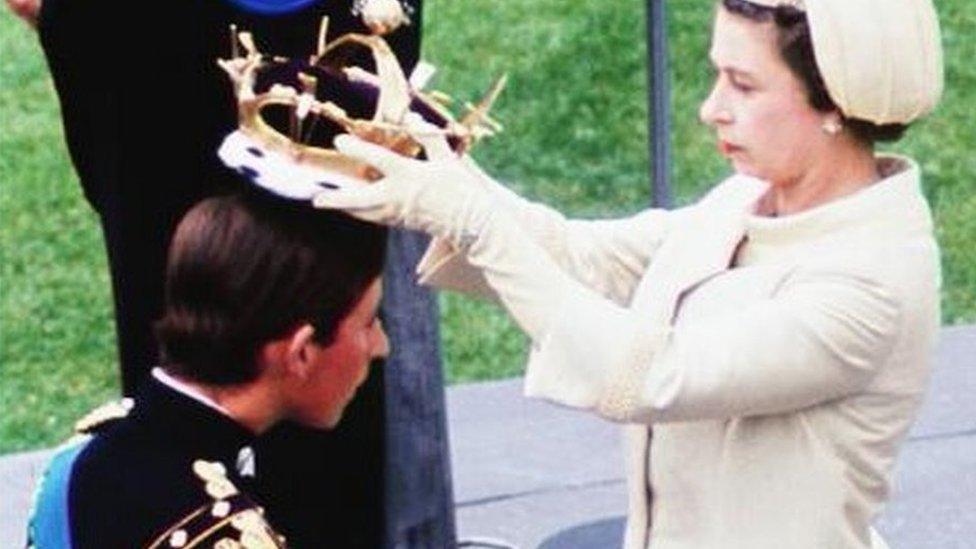Prince of Wales investiture: Charles' 50 years in the role
- Published
The investiture ceremony took place in Caernarfon Castle
Prince Charles begins his annual summer visit to Wales on Monday, as he marks 50 years since his investiture.
The prince was 20 when he was crowned in a ceremony at Caernarfon Castle.
The lavish event was watched by a TV audience of millions around the world, but polarised opinion in Wales.
Charles was just nine years old when a recorded message from Queen Elizabeth II announced to an excited crowd at the 1958 Empire Games in Cardiff that she intended making him Prince of Wales.
Reporter Brian Hoey, who was working at the games for the BBC, recalled: "At that moment, there was uproar. The crowd really went crazy."
Former Lord Lieutenant of South Glamorgan Sir Norman Lloyd Edwards, who went on to know the prince well, also recalled the excitement at Cardiff train station, where he was at the time of the announcement.
"It didn't have a roof, but if it had had a roof it would have come off," he said. "There was enormous excitement on the platform and in the railway station."
Among the guests invited to the investiture 50 years ago was Sir Nicholas Soames, a lifelong friend of the prince.
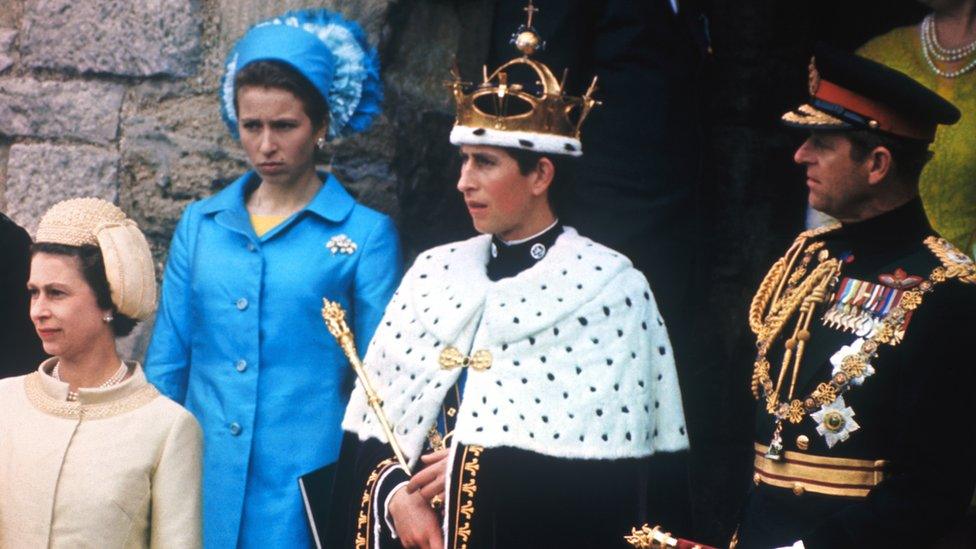
Charles was crowned Prince of Wales in front of huge crowds
"It was one of the greatest days of my life and of course, it was made the more extraordinary because of what was actually happening," he said. "Here was the creation of the Prince of Wales in the most wonderful and moving ceremony in that magnificent castle."
Street parties were held across the country, but it also polarised opinion between those who supported the role and those who believed it was an imposition on the country.
The investiture was conducted against a backdrop of protests and even bombings.
One of the bombs, which exploded at council offices in Abergele in the early hours of the day of the investiture, killed the two men it has always been assumed planted it, external.
Five decades on, there are no major commemorations planned in Caernarfon.
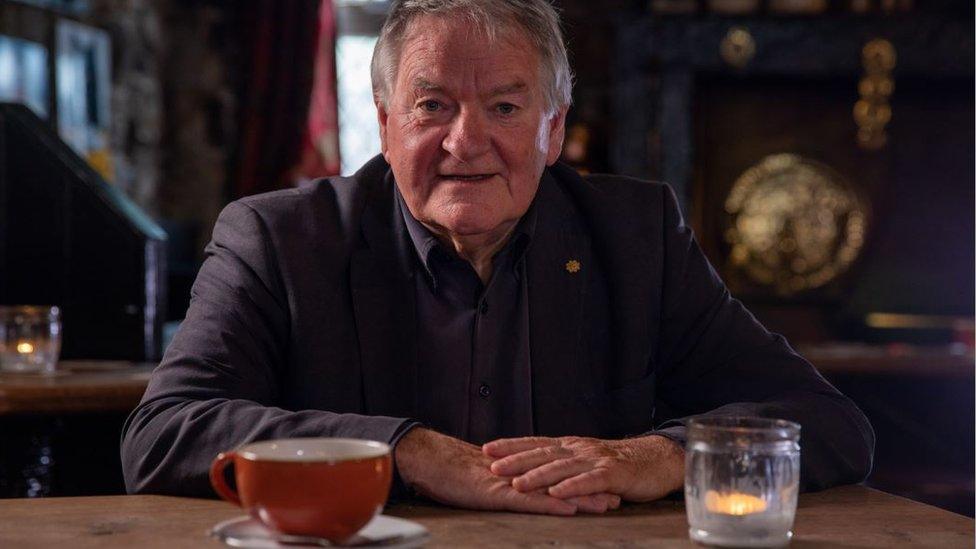
Dafydd Iwan said the investiture "came out of nowhere" amidst political turmoil
In the late 1950s, Welsh nationalism was yet to spark into life. Eleven years later, when Charles was crowned, it was a different story.
For Welsh folk singer and former Plaid Cymru president Dafydd Iwan, it was easy to be cynical about the event, which took place in the castle built by Edward I - the English king who had killed the last Welsh Sovereign Prince of Wales in the 13th Century.
"The 60s was a period of great change and amidst all the political turmoil came the investiture from nowhere," said Mr Iwan.
"We felt we had to resist that in 1969. We couldn't forget the way the title Prince of Wales had been taken from us, as it were, and given to the heir to the throne."
Dafydd Iwan's protest song "Carlo" became an anthem for the protests and he said he remains opposed to the position of Prince of Wales.
But Mr Iwan added: "There's no point in painting him as an evil character.
"I think he has done some excellent work through the Prince's Trust. I mean, he's done the best of a bad job. He has contributed, yes."
Since then, the prince has worked on projects in areas of interest to him; urban regeneration, the environment, architecture, sustainable farming, music and the arts.
He also set up the Prince's Trust and Prime Cymru, which provide skills support and training to young people and the over-50s in Wales and elsewhere.
In all, he has set up or become involved with 42 different charities or organisations in Wales.
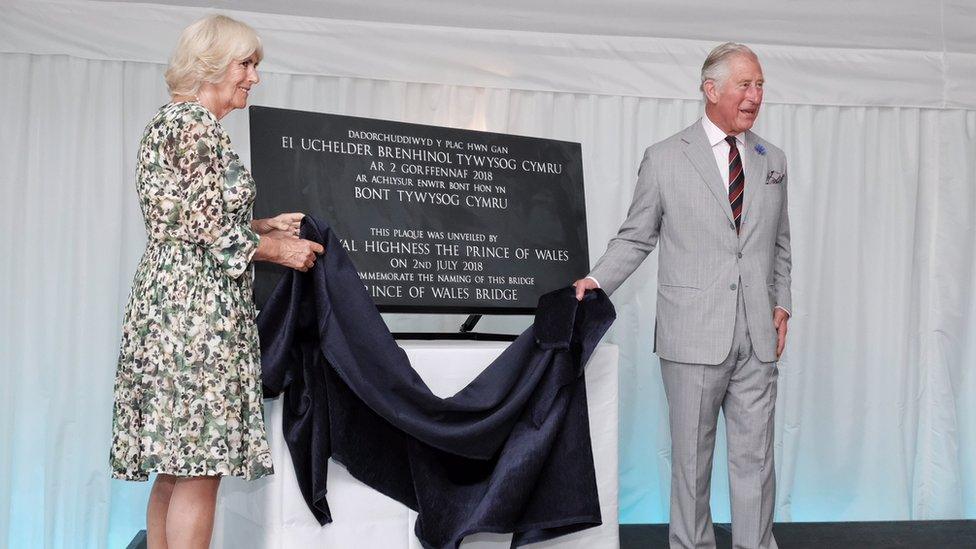
The Prince of Wales and Duchess of Cornwall unveiled a plaque to mark the new name for the Second Severn Crossing
As early as 1970, the prince was making speeches about plastic pollution, telling a conference in Cardiff: "When you think that each person produces roughly 2lbs of rubbish per day using non-returnable bottles and plastic containers, it is not difficult to imagine the mountains of refuse that we shall have to deal with somehow."
He eventually bought a home in Wales - at Myddfai in Carmarthenshire, the first royal residence in the country for hundreds of years - in 2006.
And even now, even though he is the longest-serving Prince of Wales, there are some dissenting voices. When the Second Severn Crossing was renamed the Prince of Wales Bridge, more than 38,000 people signed a petition asking for it to be named after someone else.
But those close to the prince say he takes his role as the royal representative of Wales very seriously. Sir Norman had regular meetings with Charles in Wales, and says privately he is very passionate about the role.
"What I learned was that he is a very caring man indeed, and cares for the country, cares for the people," said Sir Norman.
The prince is involved in the ongoing transformation of an oil refinery near Neath into a new village with 4,000 homes using local craftsman and a regional supply network which, he says, is better for the environment. And he uses Welsh firms as suppliers, spreading the name of local producers across the world.
Former Welsh Secretary, Peter Hain, said he received regular letters from the prince while in government and that he has urged the prince to continue to speak out on issues close to him, even when he becomes king.
If Charles becomes king, Prince William would be in line to be the next Prince of Wales. Having lived on Anglesey where he worked as an RAF search and rescue pilot, and been a regular and visible supporter of Welsh sport, he already has connections to the country. But are we likely to see another grand ceremony like that at Caernarfon Castle in 1969?
BBC Wales' St David's Day poll, external earlier this year found the majority of respondents - 61% - were in favour of another investiture.
But Welsh academic and former international footballer Prof Laura McAllister said she thought that would not be wise.
"We are in a different environment now where people are less deferential to authority, and particularly towards Royalty, where they feel there are inequalities and privilege being reflected at a time when a lot of people are struggling to make ends meet," she said.
"If there was a decision to hold an investiture for Prince William, I would be incredibly surprised if this didn't prove to be a very, very divisive and significant moment in the political history of Wales."
Charles: Prince for Wales? is on Monday, 1 July at 20:30 GMT on BBC One Wales and will also be available on the BBC iPlayer
- Published1 July 2019
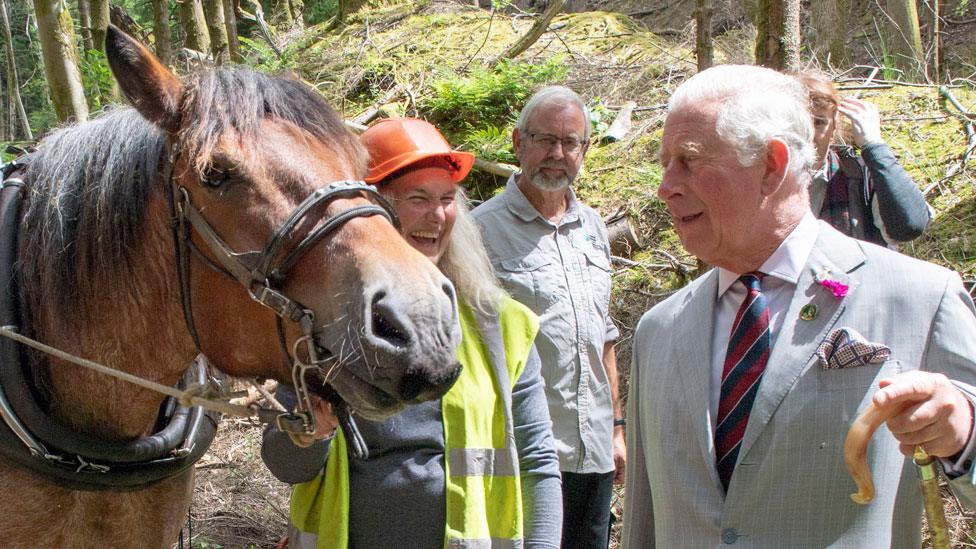
- Published7 March 2019
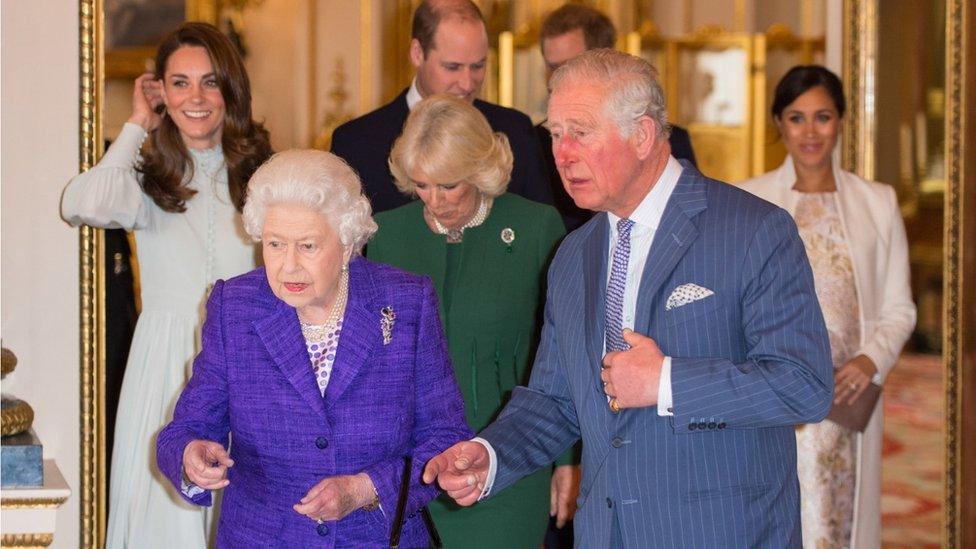
- Published8 November 2018
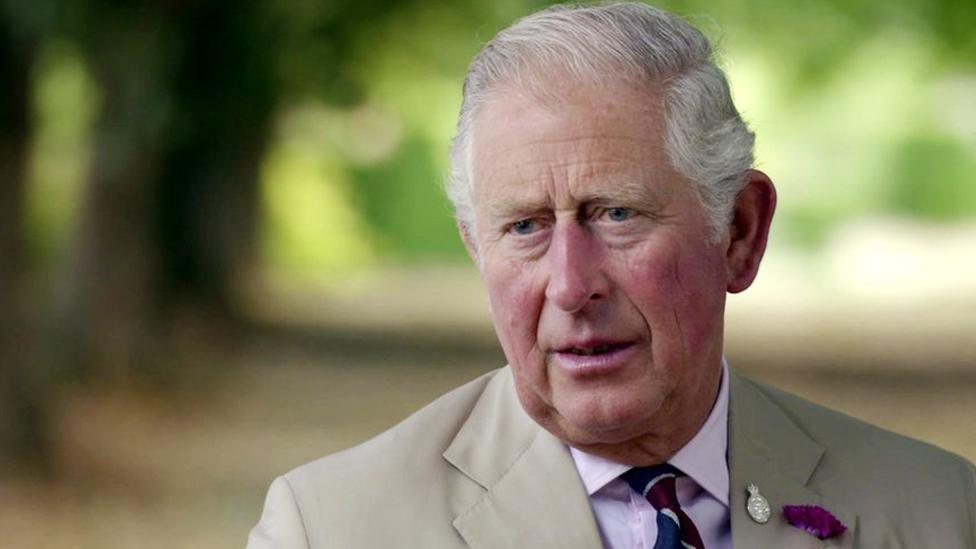
- Published2 July 2018
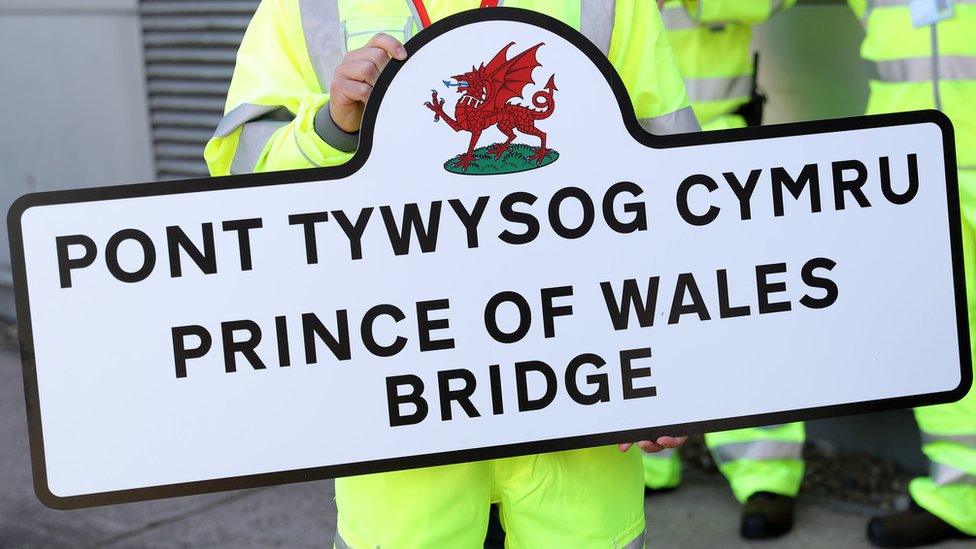
- Published15 February 2019
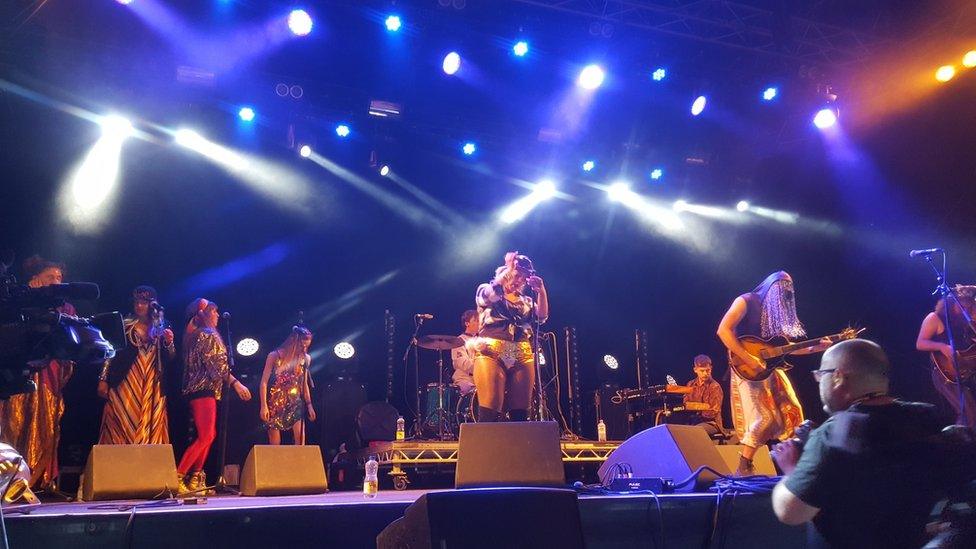
- Published13 December 2017
